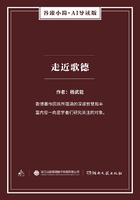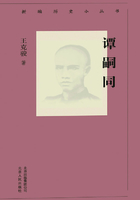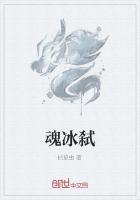So we remained in Paris, and with our income increased. But we were at the same time working under increasingly difficult conditions. Pierre Curie was doing double teaching; and that in the P.C.N., with its very large number of students, fatigued him greatly. As for myself, I had to give much time to the preparation of my lectures at Sèvres, and to the organization of the laboratory work there, which I found very insufficient.
Moreover, Pierre Curie's new position did not bring with it a laboratory; a little office and a single work room were all that he had at his disposition in the annex ( rue Cuvier) of the Sorbonne, which served as teaching quarters for the P.C.N. And yet he felt it absolutely necessary to go ahead with his own work. In fact, the rapid extension of his investigations in radioactivity had made him determine that in his new position at the Sorbonne he would receive students and start them in research. He therefore took steps to find larger available working quarters. Those who have taken similar steps realize the wall of financial and administrative obstacles against which he was throwing himself, and realize the large number of official letters, visits, and of requests the least success entailed. All this thoroughly wearied and discouraged Pierre Curie. He was obliged, too, constantly, to keep traveling back and forth between the laboratories of the P.C.N. and the hangar of the School of Physics where we still continued our work.
And besides these difficulties, we found that we could not make further progress without the aid of industrial means of treating our raw material. Fortunately certain expedients and generous assistance solved this question.
As early as Pierre Curie succeeded in organizing a first industrial experiment, using for it a chance installation placed at his disposition by the Central Society of Chemical Products, with which he had had relations in connection with the construction of his balances. The technical details had been arranged very successfully by André Debierne, and the operations brought good results, even though it had been necessary to train a special personnel for this chemical work which demanded special precautions.
Our investigations had started a general scientific movement, and similar work was being undertaken in other countries. Toward these efforts Pierre Curie maintained a most disinterested and liberal attitude. With my agreement he refused to draw any material profit from our discovery. We took no copyright, and published without reserve all the results of our research, as well as the exact processes of the preparation of radium. In addition, we gave to those interested whatever information they asked of us. This was of great benefit to the radium industry, which could thus develop in full freedom, first in France, then in foreign countries, and furnish to scientists and to physicians the products which they needed. This industry still employs to-day, with scarcely any modifications, the processes indicated by us.
Even though our industrial experiment yielded good results, again our slender resources made it difficult to make further progress. Inspired by our attempt, a French industrial, Armet de Lisle, had the idea, which seemed daring at that epoch, of founding a veritable radium factory that would furnish this product to physicians, whose interest in the biological effects of radium and its possible therapeutic applications had been aroused by the publication of various investigations. The project proved a success because he could employ men already trained by us in the delicate processes of this manufacture. Radium was then regularly placed on sale, at a high price, it is true, because of the special conditions under which it had to be made, and because, too, of the immediate rise in the cost of the minerals necessary to its production.
I should like to express, here, our appreciation of the spirit in which Armet de Lisle offered to co?perate with us. In an entirely disinterested manner he placed at our disposition a little working place in his factory and a part of the means necessary for us to use it. Other funds were added either by ourselves, or came through subventions, of which the most important, accorded in by the Academy of Sciences, amounted to , francs.
It was in this way that we were able to utilize the ore we had acquired little by little in the preparation of a certain quantity of radium, which we used constantly in our research. The radium-bearing barium was extracted in the factory, and I carried on its purification and fractional crystallization in the laboratory. In I succeeded in preparing a decigramme of chloride of pure radium which gave only the spectrum of the new element, radium. I made a first determination of the atomic weight of this new element, an atomic weight much higher than that of barium. Thus the chemical individuality of radium was completely established, and the reality of radioelements was a known fact about which there could be no further controversy.
I based my doctor's thesis, presented in , on these investigations.
Later, the quantity of radium extracted for the laboratory was increased, and in I was able to make a second and more precise determination of the atomic weight as . -- one accepts now the number . I succeeded, too, jointly with André Debierne, in obtaining radium in the state of metal. The total quantity of radium I prepared and gave to the laboratory, in agreement with Pierre Curie's desire, amounted to more than a gramme of radium element.















